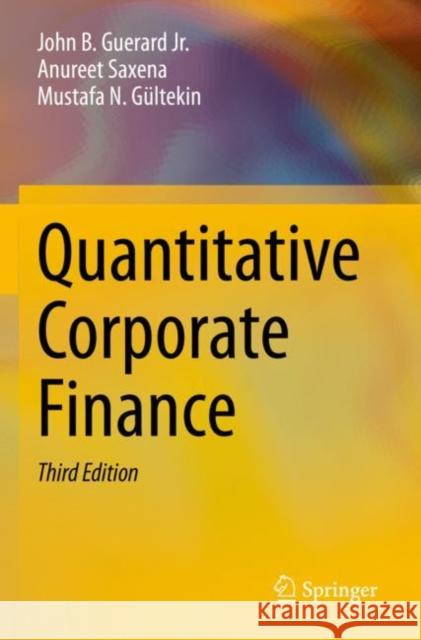Quantitative Corporate Finance » książka
topmenu
Quantitative Corporate Finance
ISBN-13: 9783030872717 / Miękka / 2023 / 657 str.
Quantitative Corporate Finance
ISBN-13: 9783030872717 / Miękka / 2023 / 657 str.
cena 205,02
(netto: 195,26 VAT: 5%)
Najniższa cena z 30 dni: 200,77
(netto: 195,26 VAT: 5%)
Najniższa cena z 30 dni: 200,77
Termin realizacji zamówienia:
ok. 16-18 dni roboczych.
ok. 16-18 dni roboczych.
Darmowa dostawa!
Kategorie:
Kategorie BISAC:
Wydawca:
Springer Nature Switzerland AG
ISBN-13:
9783030872717
Rok wydania:
2023
Ilość stron:
657
Wymiary:
23.5 x 15.5
Oprawa:
Miękka
Dodatkowe informacje:
Wydanie ilustrowane











